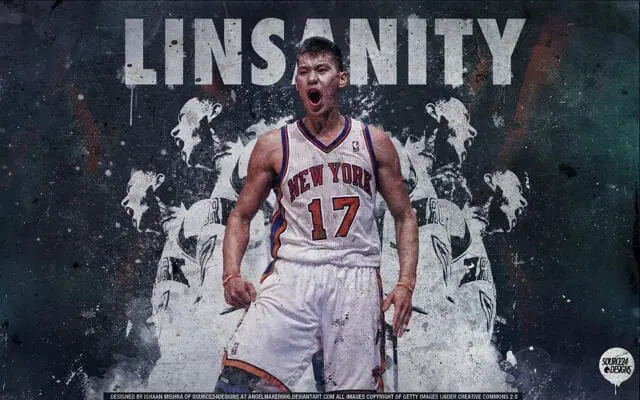
We live in a world in desperate need of heroes. Every day the headlines hit us with some depressing new development: an earthquake, a war, a politician cheating on his cancer-stricken wife. So when people do something unexpectedly positive, we tend to overreact. We splash their faces across magazine covers, praise them online and shower them with televised plaudits. They become our champions and saviours, even if only for 15 minutes or so. Ours is a culture of myths and mythmakers—and nowhere is this culture more entrenched than in the world of professional sports.
Once upon a time, Jeremy Lin was just a basketball player. Now, due to our collective hunger for feel-good stories, he is an icon and a pioneer. A first-generation Taiwanese-American playing point guard for the New York Knicks, Lin set both the NBA and the blogosphere alight in recent weeks due to a string of impressive performances. According to *Sports Illustrated*, his 109 point total through his first four starts is the most by any player in the modern-era NBA and includes an impressive 38 against one of the NBA’s premier franchises, the Los Angeles Lakers. He also happens to be the first American-born athlete of Asian descent to play in the NBA—something to be celebrated as a shining example of modern inclusivity.
But Jeremy Lin’s true universal appeal lies in his status as a tenacious underdog. His story (though world famous by now) demands to be retold again and again. He was cut twice—once by the Golden State Warriors, then by the Houston Rockets—but overcame these setbacks, landing a spot with the Knicks and proving his detractors wrong. From unwanted castoff to trending topic in a New York minute, what more could we ask for?
Of course, as so often happens in the volatile public sphere, with high praise comes an equally high degree of scorn. Our first instinct, when watching something incredible developing in front of our eyes is to react with suspicion. To wit: a random Facebook comment underneath a shot of his *Sports Illustrated* cover photo suggests we all “get over Jeremy Lin” because “there are a lot of good no-name players this year.” Another implores the media to “get off his nuts,” while a third points out his penchant for terrible turnovers.
This last comment actually contains a measure of truth. Over the course of his unprecedented run, Lin served up the ball to the opposing team almost as often as he served up the points, averaging an ugly 6.2 turnovers in his past five starts. In fact, during a Feb. 23 game against the Miami Heat, Lin had as many turnovers as he did points—eight apiece—which led some to wonder: Is Linsanity for real?
The question is a valid one, but misleading. The truth is, nothing in contemporary sports is actually all that authentic.
We love our heroes, but we love creating them, not sustaining them. Our collective attention span is, sadly, volatile and short. And the fact remains that pro sports are now part of the entertainment industry, which prizes temporary glamour as much as, if not more than, sustained achievement.
Does this mean Linsanity is just another temporary distraction, a media-fueled blip on our pop-culture radar? Yes, and no. Yes, because media frenzies generally do not last very long and Lin’s recent stats (including the glaring number of turnovers) suggest he is most likely human after all, incapable of continuing to score at such an incredible pace. But this does not mean Jeremy Lin will necessarily fade into obscurity. If nothing else, his emergence has forced us to confront ugly aspects of our society that we often overlook.
For example, following one of his few bad games, *ESPN.com* published a story bearing the headline “Chink in the Armor,” a squirm inducing reference to Lin’s ethnic heritage. While such a slur is both unprofessional and unforgivable, it should serve as a wake up call, a reminder that, even within mainstream North American culture, xenophobic stereotypes regarding those of Asian descent remain unfortunately present.
In addition to *ESPN*’s miscue (for which the responsible party was promptly fired), it was revealed in the *Vancouver Sun* and elsewhere that Ben and Jerry’s new “Taste the Lin-sanity” flavoured ice cream originally contained fortune cookies.
Unpleasant though they may be, these controversies give us good reason to believe Lin’s legacy will extend beyond the basketball court. After all, it is only by facing our prejudices head-on that we can hope to overcome them, and Lin’s exploits provide the perfect opportunity to begin the self-examination.
As a symbol of how far we have come and how far we have yet to go, Jeremy Lin is exactly the kind of present day hero we need.

Recent Comments